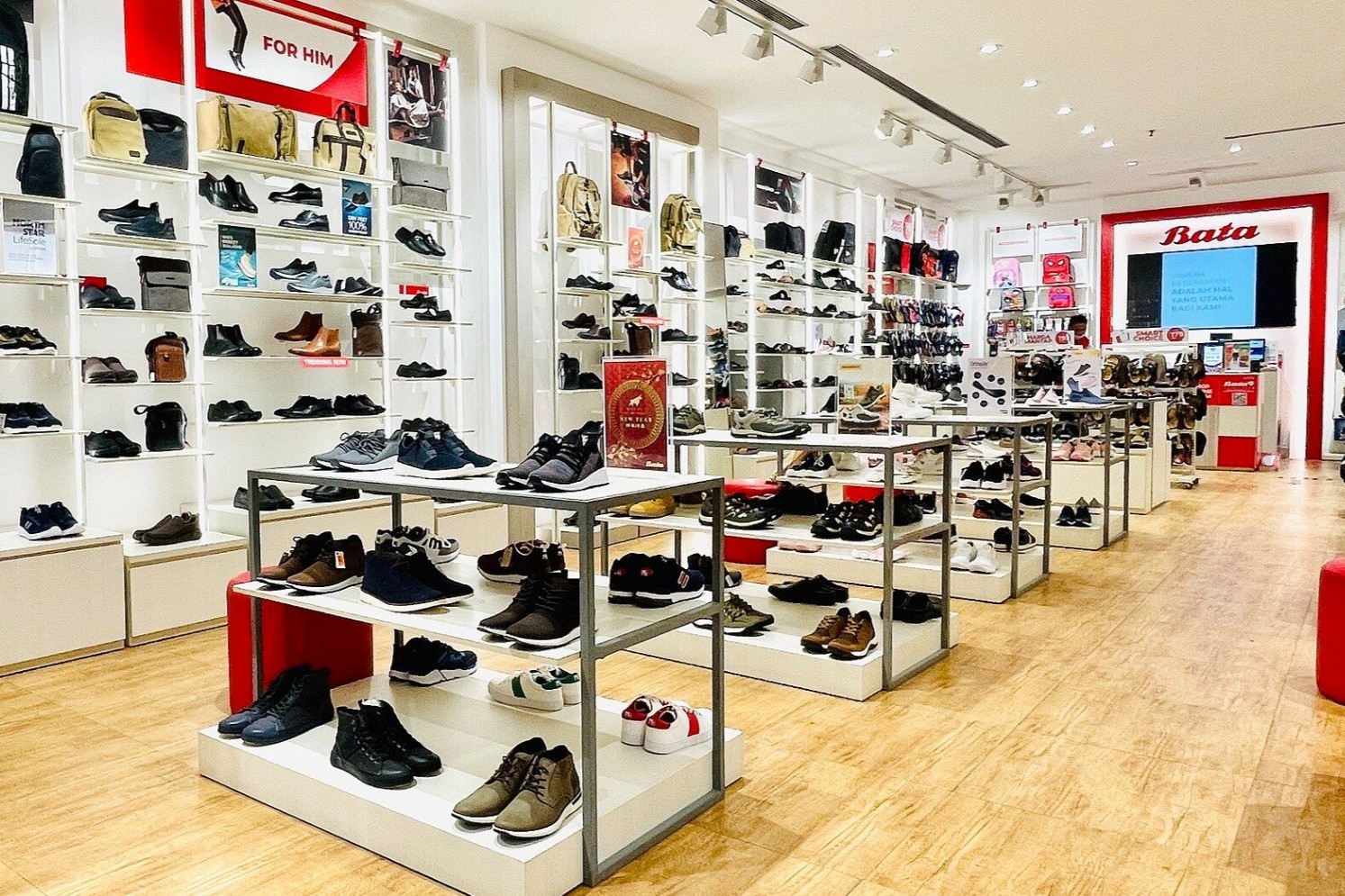PT Sepatu Bata Tbk (BATA) has officially removed its shoe manufacturing business from its corporate charter. This decision, approved during the Extraordinary General Meeting of Shareholders (EGMS) on September 25, 2025, marks a turning point in the company’s long history of footwear production in Indonesia.
According to a public disclosure, shareholders approved “an amendment to Article 3 of the Company’s Articles of Association to remove the business activity of manufacturing footwear for daily needs.”
Purwakarta Factory Closure Leaves Hundreds Jobless
The decision follows the closure of Bata’s Purwakarta factory in West Java last year, which led to 233 workers losing their jobs.
Bata Director Hatta Tutuko said the company had struggled for four years amid sustained losses and rapid changes in consumer behavior after the pandemic.
“The company can no longer continue production at the Purwakarta factory because customer demand for the products made there continues to decline, and the plant’s production capacity far exceeds sustainable demand that could be sourced locally in Indonesia,” Hatta explained.
Financial Struggles Deepen Despite Cost Efficiency
Bata’s financial performance has deteriorated sharply. The company recorded a net loss of IDR 190.29 billion in 2023, a 79.65% increase compared to 2022.
By March 2025, the losses had reached IDR 19.64 billion, up 41.75% year-on-year. Revenue fell by 16.34% to IDR 94.92 billion despite a reduction in operational costs by nearly 25%.
As part of its restructuring plan, Bata has closed or plans to close over 200 unprofitable retail stores, aiming to build a sustainable retail network supported by digital sales channels.
Government: Business Shift Is a Strategic Move
A spokesperson for the Ministry of Industry, Febri Hendri Antoni Arief, said Bata’s move to end production was part of an internal business strengthening strategy, not a signal of industrial decline.
“Bata has chosen to focus on strengthening its e-commerce business rather than manufacturing. Asset sales are part of its financial recovery plan,” Febri said.
He emphasized that Indonesia’s domestic footwear industry remains strong and capable of meeting both domestic and export market demands.
Analysts Cite Brand Aging and Changing Consumer Habits
Marketing expert Yuswohady said Bata’s challenges go beyond operational costs, pointing to the aging of its brand and its failure to attract younger consumers.
“The brand’s aging process has been ongoing since the 1990s. Bata’s market now is mainly Gen X and Boomers, whose purchasing power is declining,” he told BBC News Indonesia.
He added that Millennials and Gen Z prefer modern, youthful local brands that better represent their identity. Bata’s reliance on brick-and-mortar stores, coupled with under-optimized digital marketing, left it vulnerable to shifting shopping patterns during and after the pandemic.
Rising Local Shoe Brands Transform the Industry
While Bata exits the manufacturing stage, several Indonesian shoe brands continue to stand strong, preserving the nation’s legacy in footwear.
Long-standing local brands such as Warrior, Dragonfly, Kasogi, Homyped, and Carvil have maintained their presence in the market, catering to loyal customers across generations. These brands, which once defined school and sports footwear in Indonesia, continue to thrive through affordability and nostalgia.
At the same time, new-generation local brands are gaining momentum among younger consumers. Brands like Aerostreet, Ventela, Compass, Brodo, Piero, and Ortuseight have redefined local craftsmanship with modern designs, strong social media marketing, and strategic collaborations.
For instance, Aerostreet from Klaten and Compass from Bandung have built strong online communities, while Brodo and Pijakbumi promote sustainability through locally sourced and eco-friendly materials. These brands have become symbols of national pride, proving that Indonesian products can compete with international names.
Industry Challenges: Import Restrictions and Rising Costs
Despite promising developments, the domestic footwear industry continues to face significant structural challenges. Indonesian Footwear Association (Aprisindo) Executive Director Firman Bakri pointed to rising minimum wages and complex import regulations as key pressures.
“The verification requirements and import permit rules make the licensing process longer and more expensive. These policies make local products less competitive compared to imported goods,” he said.
Economist Andry Satrio Nugroho of Indef added that regulatory burdens are raising production costs and reducing employment potential in labor-intensive sectors like footwear.
“Instead of giving incentives, the government increases the regulatory cost, which raises production expenses and reduces competitiveness,” he stated.
The Ministry of Industry maintains, however, that import controls aim to boost local raw material production and attract new investors to strengthen the domestic supply chain.
This article is a summary of two original articles. The full versions can be read at the following links:
https://www.cnbcindonesia.com/market/20251010084158-17-674600/bata-hapus-bisnis-produksi-sepatu
https://www.bbc.com/indonesia/articles/c6py18wg978o
PHOTO: WIKIMEDIA COMMONS
This article was created with AI assistance.
Read More






 Friday, 27-02-26
Friday, 27-02-26







